Athira Subhash
Max-Min Data Rate Optimization for RIS-aided Uplink Communications with Green Constraints
Jul 30, 2022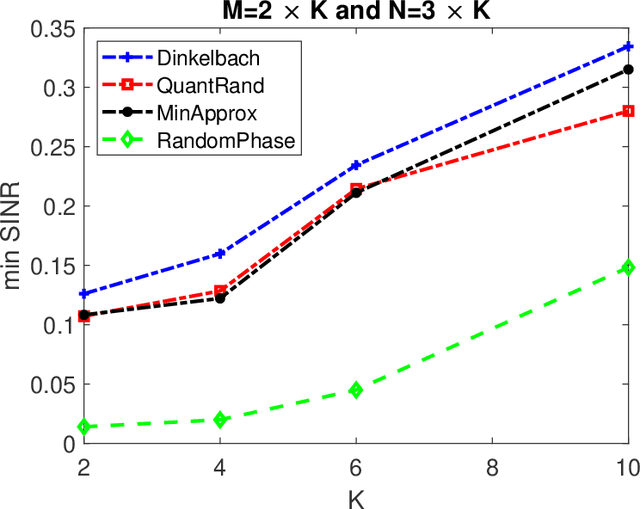
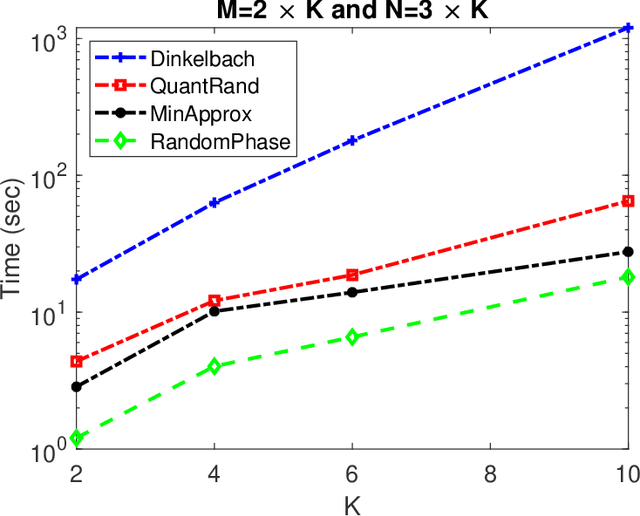
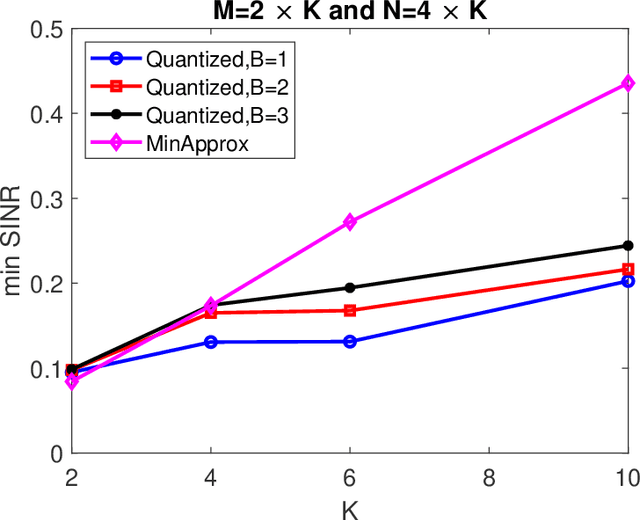
Abstract:Smart radio environments aided by reconfigurable intelligent reflecting surfaces (RIS) have attracted much research attention recently. We propose a joint optimization strategy for beamforming, RIS phases, and power allocation to maximize the minimum SINR of an uplink RIS-aided communication system. The users are subject to constraints on their transmit power. We derive a closed-form expression for the beam forming vectors and a geometric programming-based solution for power allocation. We also propose two solutions for optimizing the phase shifts at the RIS, one based on the matrix lifting method and one using an approximation for the minimum function. We also propose a heuristic algorithm for optimizing quantized phase shift values. The proposed algorithms are of practical interest for systems with constraints on the maximum allowable electromagnetic field exposure. For instance, considering $24$-element RIS, $12$-antenna BS, and $6$ users, numerical results show that the proposed algorithm achieves close to $300 \%$ gain in terms of minimum SINR compared to a scheme with random RIS phases.
Joint Power-control and Antenna Selection in User-Centric Cell-Free Systems with Mixed Resolution ADC
Dec 16, 2021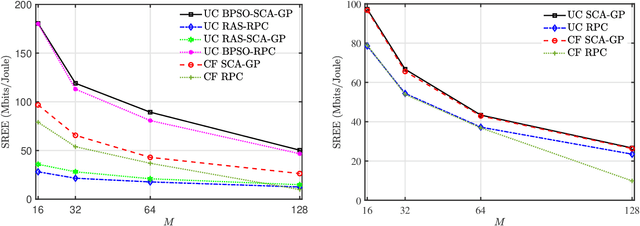
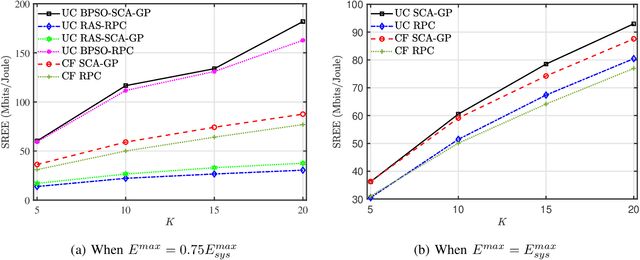
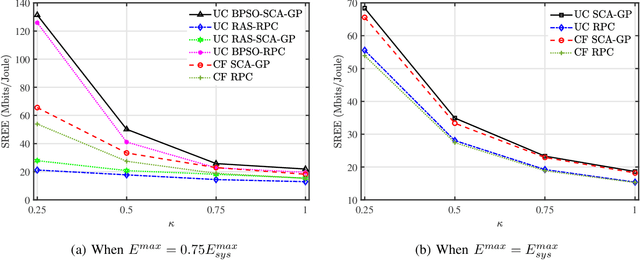
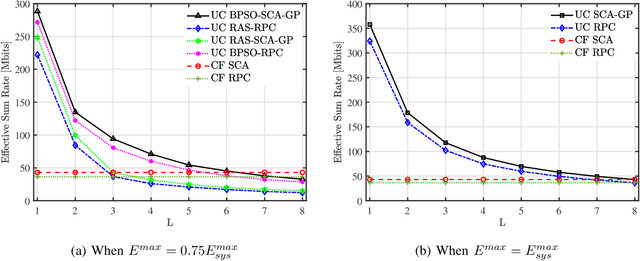
Abstract:In this paper, we propose a scheme for the joint optimization of the user transmit power and the antenna selection at the access points (AP)s of a user-centric cell-free massive multiple-input-multiple-output (UC CF-mMIMO) system. We derive an approximate expression for the achievable uplink rate of the users in a UC CF-mMIMO system in the presence of a mixed analog-to-digital converter (ADC) resolution profile at the APs. Using the derived approximation, we propose to maximize the uplink sum rate of UC CF-mMIMO systems subject to energy constraints at the APs. An alternating-optimization solution is proposed using binary particle swarm optimization (BPSO) and successive convex approximation (SCA). We also study the impact of various system parameters on the performance of the system.
 Add to Chrome
Add to Chrome Add to Firefox
Add to Firefox Add to Edge
Add to Edge